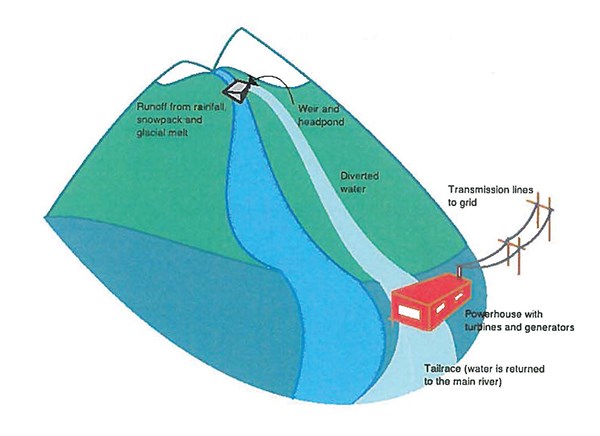Squamish council is taking preliminary steps toward creating a run-of-river power project on Mashiter Creek.
On Tuesday, council’s committee of the whole enthusiastically approved the project in principle and directed district staff to look further into the construction of a hydroelectric generating station on the creek.
“Council has been talking about a community power project for many, many, many years, going back at least two or three terms now,” said Mayor Patricia Heintzman.
“I think it is great. I think it is awesome.”
The proposed, small-scale project would use existing municipal infrastructure at the creek, in addition to the construction of a new powerhouse north of the Garibaldi Highlands and interconnection with the BC Hydro grid.
The project, which will be owned and operated by the district, would create between 125 to 180 kilowatts of power, bringing revenue of approximately $120,000 to $180,000 per year, according to a report submitted to council.
“The district has an opportunity to be a leader in sustainable communities, having a community-owned green and sustainable power source,” said David Roulston, municipal engineer.
According to rough estimates based on conceptual designs in a business plan by consultants Impulse Developments, the project would cost about $1 million to construct plus about $30,000 in operating costs per year. The district has opportunities to apply for grants to help fund the project, according to Roulston.
Basically, run-of-river projects involve diverting water from a river or creek at a high elevation, running the water through turbines and generators in a powerhouse at a lower elevation before returning the water back to its source.
“I have heard about these projects for 20 years and seen two or three of them built,” said Councillor Ted Prior. “I am so excited to see one in our domain… and not only in our domain, but we have all the pipes hooked up already.”
The district currently has a backup water supply intake on the creek, which runs about three kilometres north of the Garibaldi Highlands. Because the creek water is turbid, the supply is for emergency only, so it’s rarely used, according to a district report.
Several steps remain before the project would be constructed. Among other permits, a new water licence has to be obtained and private land agreements have to be reached, as well as agreements with BC Hydro. Staff will bring back a more detailed report to a future council meeting.
As the proposal progresses, public consultation will take place, according to district staff.
Some 51 run-of-river projects are currently operating in B.C., according to the BC Sustainable Energy Association.




